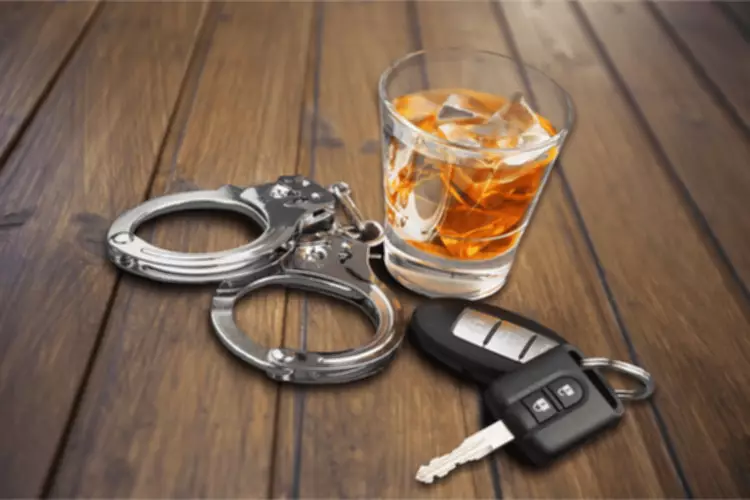Content
While drinking, they feel invincible and even feel they can yield power over others. So, alcohol can make the NPD traits that much more potent and cruel. These might be accentuated with substance use but would also exist when the person is sober. Namely, parental attention that’s mismatched to the child’s experience by being either overly adoring https://ecosoberhouse.com/article/is-it-possible-to-get-sober-without-aa/ or overly critical has been shown to be part of the upbringing of many people with NPD. However, there is also evidence that the general environment of a person’s upbringing can play a role in NPD. Aggression has been one personality trait linked with NPD, and studies show that the higher the level of aggression, the more severe the NPD.
When there is a co-occurring mental health disorder, meds may be prescribed. As for NPD, there is not a specific drug to treat it, but some patients benefit from antidepressants. Someone with a dual diagnosis will first need to go through the process of detox and withdrawal. This step clears the substance from the system and allows the person to engage in treatment with a clear head. NPD is a complex mental health disorder that is difficult to treat. The key feature is a cold, emotional detachment from the host, or victim, and not admitting the pain they inflict.
What is Narcissistic Personality Disorder?
Although most of these traits point to what one might believe to be high self-esteem, underlying low self-esteem is often the case for people with NPD. Feelings of superiority can lead to taking advantage of others, making it difficult to build and maintain close relationships. If you are considering treatment for yourself or a loved one, call us today. If your alcohol use is severe, you’ll likely need to go to an inpatient facility so that you can safely withdraw from alcohol. Alcohol withdrawal can be dangerous, so it’s important to seek medical help. People with NPD tend to have difficulty receiving criticism from others, and as such, they might find it difficult to commit to psychotherapy and lifestyle changes.

Regardless, it’s always a good idea to look for mental health help if you’re experiencing something that causes you distress. If alcohol misuse begins to impact your life, health, or safety, you might have AUD. Many people use the terms “alcohol use disorder” and “alcohol misuse” interchangeably, but they refer to two different things. Although alcohol misuse and AUD can cause someone to display narcissist-like behavior, this behavior might change when they’re sober or in recovery. Most classic emotional addictions are to rage/anger, sadness, anxiety/worry, self-loathing and rejection.
Separation Anxiety: It’s Not Just for Toddlers
Holistic methods can aid the person in delving into their psyche and discovering new insights about why they behave the way they do. These methods include art therapy, meditation, yoga, and mindfulness. The use of alcohol in particular can boost the NPD’s sense of superiority.

Researchers noted that college atmospheres, in general, are very pro-alcohol, and people with narcissistic personality traits might drink alcohol in an effort to show off. If you think you’re misusing alcohol, or if you think you have NPD, reach out to a mental health professional. Everybody can benefit from speaking with a therapist, regardless of whether they fit the criteria for a mental health condition. Alcoholics Anonymous is built on a core principle that individuals have to admit their powerlessness over their substance abuse, and it is this surrender that gives way to a spiritual awakening. However, people who suffer from narcissism are often unable to comprehend the idea of their powerlessness and submission to a higher power. As a result, people like this might not do well in a standard treatment program.
Made with ❤ for Seacrest Recovery Center
The narcissistic enabler minimizes all signs of addiction and fosters feelings of superiority over others. The addiction enabler is likewise blind to symptoms of addiction, therefore, justifying financially supporting it. One of the hardest types of people to deal with is a narcissist in the middle of their addiction. The combined selfishness of narcissism and addictive behavior is overpowering, relentless, callous, and frequently abusive.
However, advances are being made in treating these co-occurring disorders. Individual therapy is the focus of narcissistic personality disorder treatment. Talk therapy is often are all addicts narcissists effective because it allows behavioral changes to happen gradually over a period of time. We aren’t aware of our lives and personalities until the side effects escalate.
Do not be afraid to reach out for help; there is hope and treatment available to you. Even so, the healing process for problematic drug use, alcohol addiction, and even a dual diagnosis can be rather complicated. Today, even though substance use is better understood for the chronic mental health condition that it is, there are still many barriers that prevent a drug addict from having an easy time healing.
- Grandiose narcissism predicts drinking behavior independently of impulsivity, which indicates that other mechanisms might be relevant (24).
- Today, we will be determining if there is any confluence between the two.
- Some narcissists are driven by very low self-esteem and have a deep need to be revered and respected.
- Most classic emotional addictions are to rage/anger, sadness, anxiety/worry, self-loathing and rejection.
- Medication-assisted treatment is available for people with alcohol or cocaine addiction.
- There are many parts to the addicted narcissist and their road to recovery.
However, almost all mental health conditions stem from a mix of factors such as environment, genetics, and neurobiology. Taken together, self-regulatory mechanisms—particularly the regulation of a chronically instable self-esteem—play a major role in the relation between narcissism and addictive behavior. For substance-related behaviors, this is most evident in substance use to cope with negative affect due to lack of others’ admiration and feelings of shame related to narcissistic vulnerability.
Overlapping tools for diagnosis
Regarding broad traits, psychopathy can be characterized mainly by interpersonal antagonism and aspects of low conscientiousness (disinhibition) (63–66). Alternative models propose two or three factors named fearless dominance/boldness, self-centered impulsivity/disinhibition, and coldheartedness/meanness (63, 68). In this article, we review associations between the Dark Triad of personality (narcissism, Machiavellianism, and psychopathy) and addictive behaviors, both substance-related and non-substance-related. We summarize evidence from personality and clinical research and integrate it with prevailing models of addiction. Specifically, we discuss addictive behavior in the light of affect regulation, which is likely more relevant in narcissism, as well as inhibitory deficits, a putative mechanism in psychopathy. These mechanisms can be related to central motives of the respective personality constructs, such as stabilization of self-esteem in narcissism and impulsive stimulation seeking in psychopathy.
As a result, these individuals require others to affirm their importance and value. Once they receive this affirmation, they experience grandiosity and may behave in an arrogant and entitled way. However, without affirmation, the same individual may feel depressed and ashamed. Therefore, the presence or absence of external validations of their value determines whether a person may have the traits of grandiose narcissism or vulnerable narcissism. Although the co-occurrence of narcissism and substance abuse can be difficult to spot, it’s important that both conditions are identified for dual diagnosis treatment options. People with narcissistic personality disorder are known to display dysfunctional emotional regulation, making them likely to experience volatile moods and mood swings.


